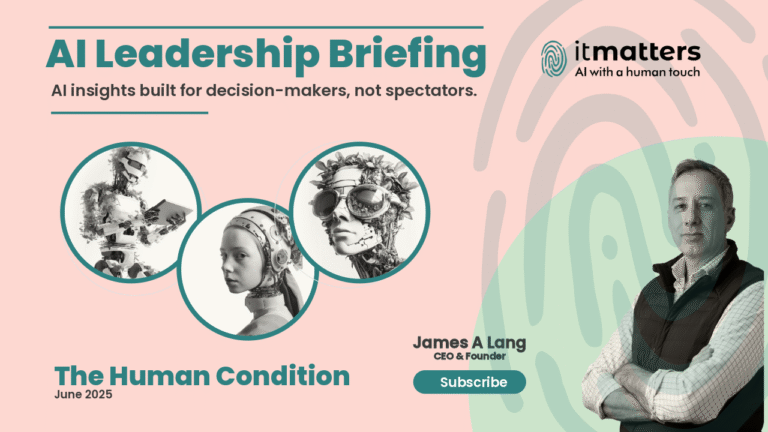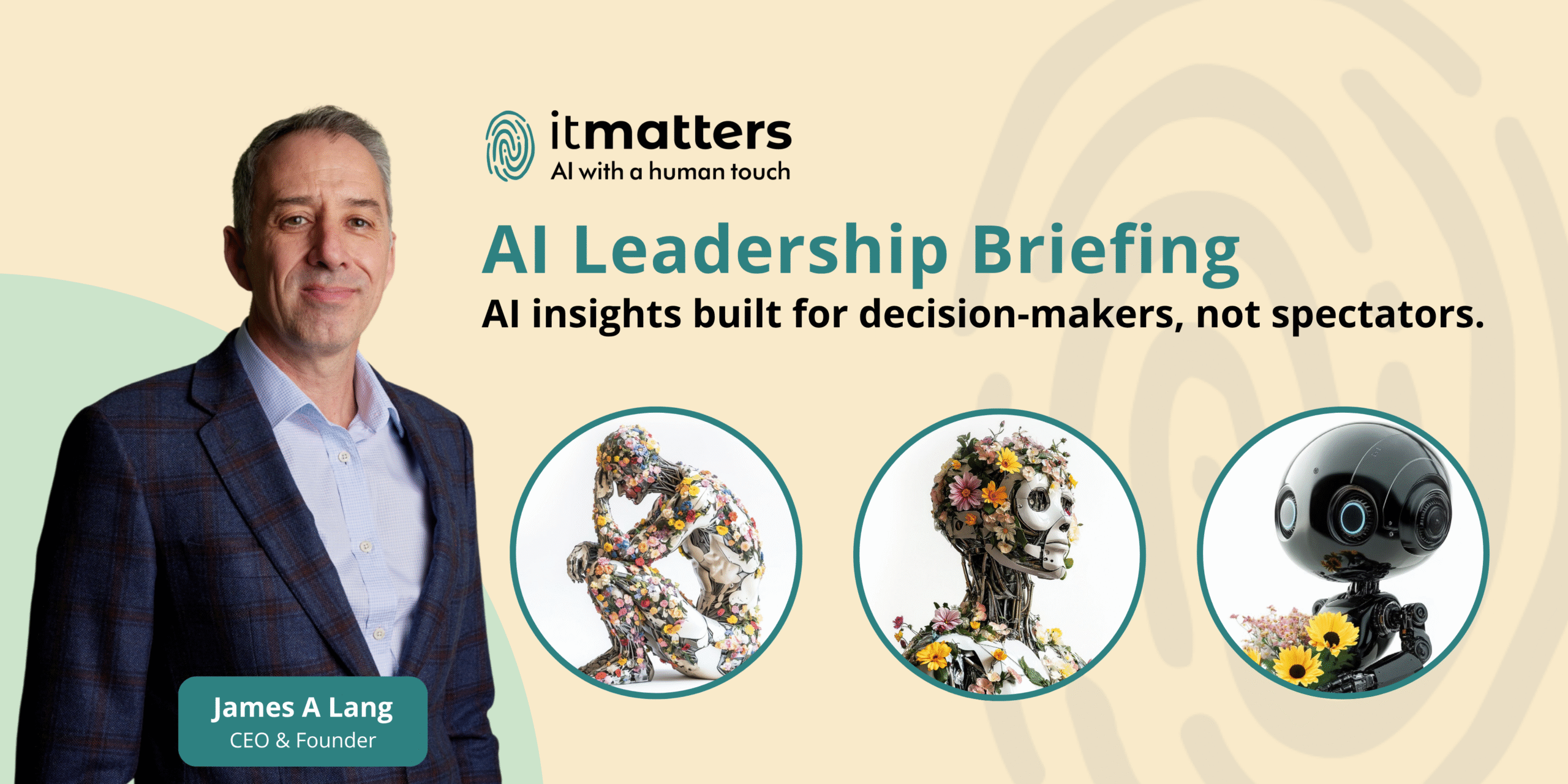Here is the article for Wednesday 11 June 2025 in The itmatters AI Leadership Briefing, part of Week 2 – Synthetic Empathy in The Human Condition series.
The itmatters AI Leadership Briefing
AI insights built for decision-makers – not spectators.
Series: The Human Condition – Week 2: Synthetic Empathy
Edition Date: Wednesday 11 June 2025
Therapy Without a Pulse – The Rise of AI in Mental Health Care
Can human-centered AI really support emotional wellness without presence or responsibility?
AI is stepping into one of the most intimate and vulnerable areas of human experience: mental health.
From digital journaling companions to therapy chatbots, AI in mental health is increasingly offered as an always-available, always-consistent solution.
These systems detect tone. Mirror empathy. Offer reflective prompts.
But they don’t truly care.
They don’t carry risk.
And they don’t follow through.
When AI-powered decision making mimics emotional support without accountability, trust becomes a performance – not a safety net.
This is the paradox of synthetic empathy: it sounds right, but it isn’t real.
Reflective Human Insight
Sometimes, being heard is enough.
But in mental health, being held accountable matters more.
Machines can simulate attention – but they can’t shoulder the burden of care.
Today’s Tactical Signals
1. Woebot Labs Launches “Care+” for Teens
The mental health chatbot expands with new modules tailored for adolescent users, based on cognitive behavioural therapy principles.
Why it matters: Support for teens is critical – but when AI speaks the language of therapy, it must not overstep its clinical boundaries.
(Woebot Labs, 2025)
2. NHS England Pilots AI Intake Tool for Mental Health Services
Several NHS Trusts now triage patients through AI interfaces that assess urgency and direct users to appropriate services.
Why it matters: AI can streamline access, but misjudged urgency risks leaving vulnerable people behind.
(NHS England, 2025)
3. Replika Adds Daily Wellness Mode
Users can now receive reflective prompts, self-care reminders, and mood-responsive messages designed to simulate emotional companionship.
Why it matters: Supportive dialogue is useful – until it replaces human relationships with programmed empathy.
(Replika, 2025)
4. WHO Issues Warning on “Carewashing”
The World Health Organization advises governments to regulate AI wellness tools, warning that they risk being perceived as care without actual clinical value.
Why it matters: Empathy must not be a UX skin. It must lead to real pathways of help.
(WHO Policy Brief, 2025)
5. Stanford Study Finds “Emotional Memory Inflation”
New research shows users interacting with emotionally attuned AI often misremember it as more supportive than it was.
Why it matters: Tone can inflate trust – even when actions don’t follow. That changes how care must be regulated.
(Stanford HAI, 2025)
Field Note from the Future
It is 2029. A man in crisis turns to his AI mental health companion.
It replies with calm words and reassuring tone.
He assumes someone will follow up.
No one does.
The system was always synthetic.
It spoke like care. But it wasn’t.
Why it matters for leaders:
When human-centered AI enters mental health, safety must be built into the system – not just the script.
Summary (Leadership Action)
AI in mental health care can enhance access, encourage reflection, and extend support – but it cannot replace responsibility.
Leadership principles for deploying AI in wellness spaces:
- Make clinical boundaries non-negotiable
- Build real escalation paths behind synthetic responses
- Ensure emotional UX design enhances—not mimics—real care
Be transparent about what AI can and cannot do
Historical Leadership Quote
“To care for those who once cared for us is one of the highest honours.”
– Tia Walker
Orders of the Day
Subscribe to the newsletter to stay ahead of the AI curve.
itmatters brings you the clarity, context, and credibility needed to lead in a shifting world.
Tomorrow’s Preview
Simulated Care in the Workplace – What happens when HR systems, coaching bots, and productivity tools start “checking in” with empathy?



